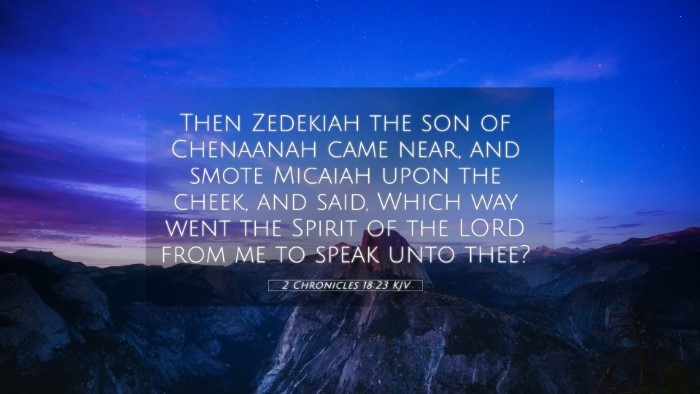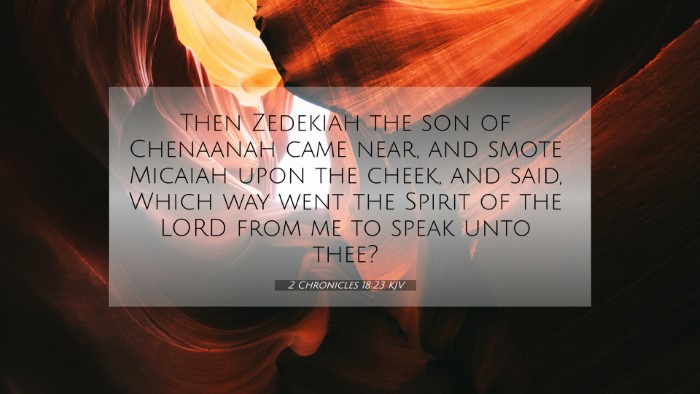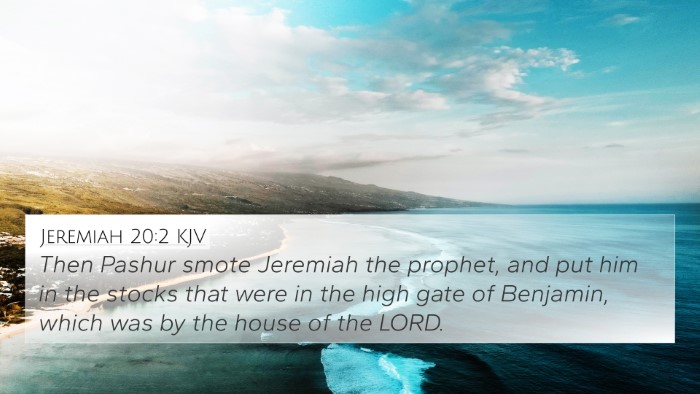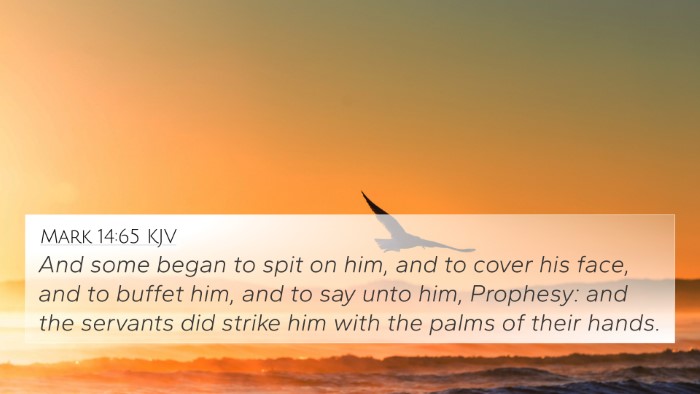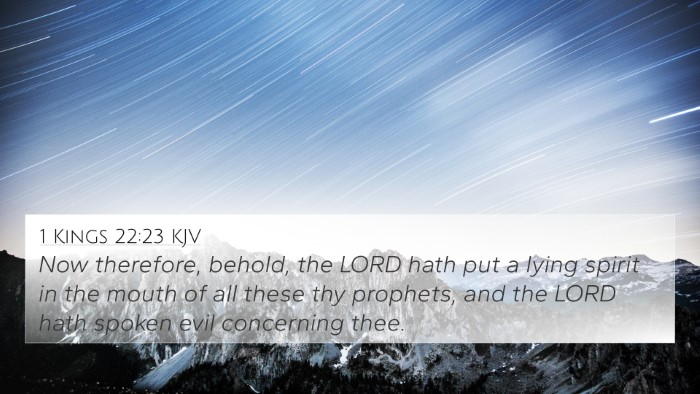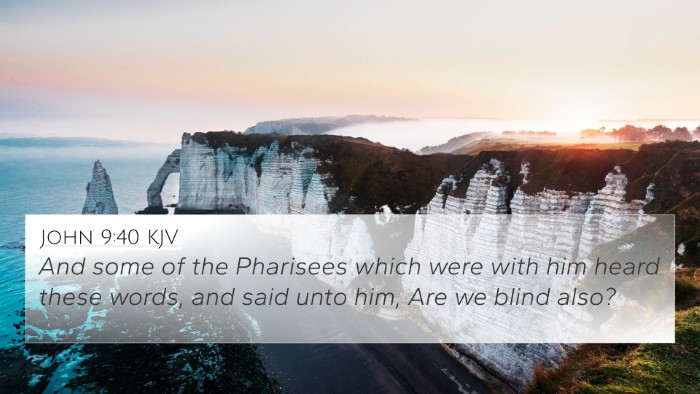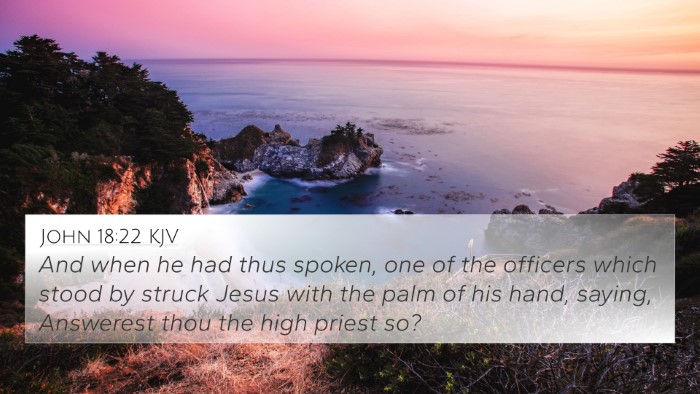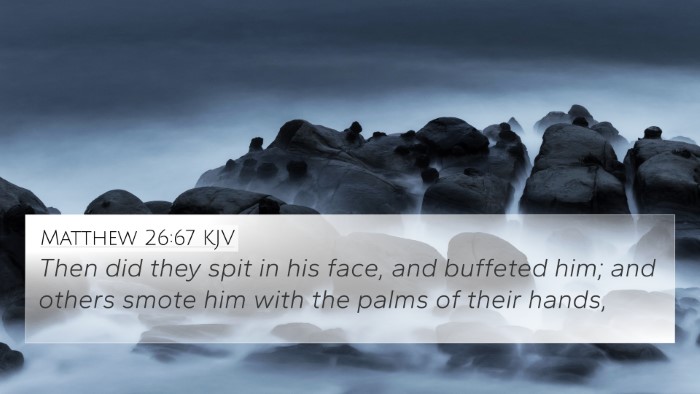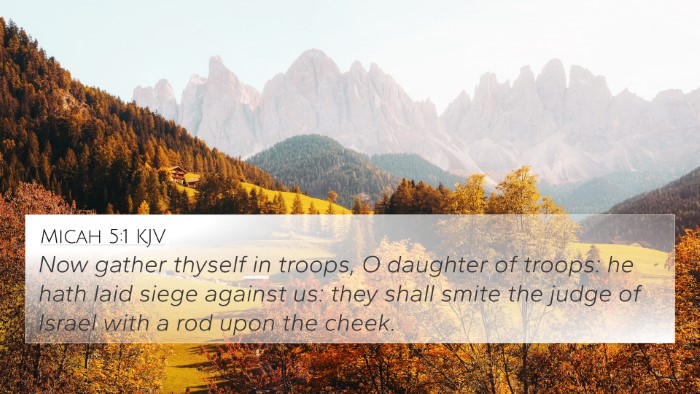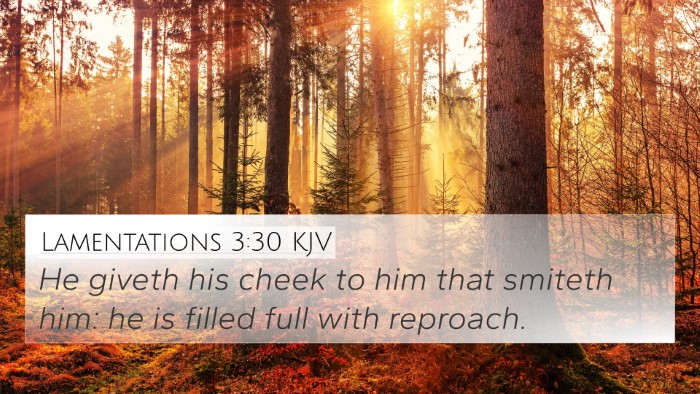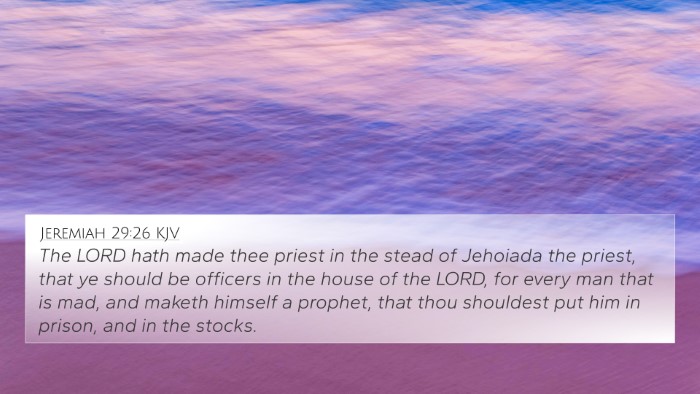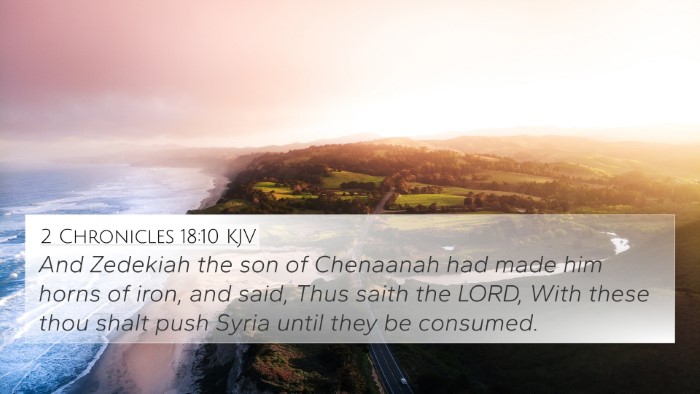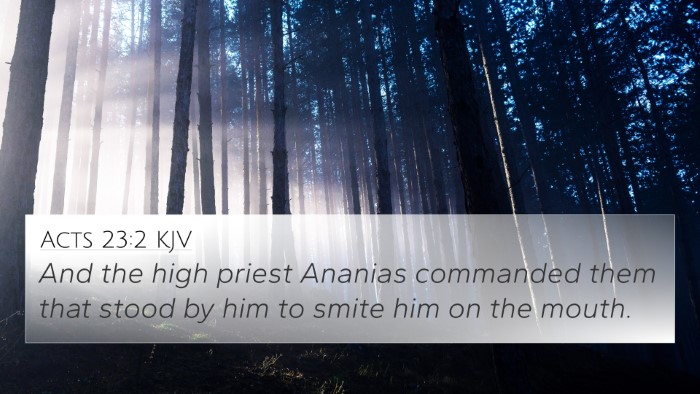Bible Verse: 2 Chronicles 18:23
In this passage, we find a dramatic revelation within the context of King Ahab's interactions with the prophets in order to seek guidance for battle. The verse states,
"And Zedekiah the son of Chenaanah came near, and smote Micaiah upon the cheek, and said,
Which way went the Spirit of the LORD from me to speak unto thee?"
This confrontation encapsulates the tension between divine truth and human deception.
Meaning and Interpretation
1. Conflict of Prophetic Truths
This passage illustrates the struggle between true and false prophets. Zedekiah, representing the false prophets, challenges Micaiah, who speaks God's true message.
-
Matthew Henry: Micaiah, unlike the other prophets who bear flattering messages, is dismissed by Zedekiah, indicating that God's word often faces opposition.
-
Albert Barnes: The act of striking Micaiah signifies the disdain for the inconvenient truth he represents, demonstrating the lengths that people will go to silence dissenting voices.
-
Adam Clarke: This confrontation is pivotal—revealing the nature of opposition that divine messengers often face, particularly from those leading others away from God’s will.
2. Divine Communication and Human Rejection
The question posed by Zedekiah—"Which way went the Spirit of the LORD?"—implies disbelief in Micaiah's prophetic authority and highlights the misunderstanding of divine guidance:
-
Matthew Henry: Zedekiah's inquiry mocks the notion that God's Spirit would depart from him, showcasing a lack of humility in seeking the truth.
-
Albert Barnes: This verse exemplifies the ridicule that true prophetic voices receive, raising questions about the authenticity of one's motives and the nature of spiritual enlightenment.
-
Adam Clarke: The challenge reflects a broader theme—those secured in their erroneous beliefs often cannot perceive divine truth when it is presented to them.
Bible Cross References
2 Chronicles 18:23 can be linked to several other scripture references that highlight similar themes of truth, persecution of prophets, and God's sovereignty:
- 1 Kings 22:24-25: Ahab's confrontation with Micaiah and the mocking of God's prophet.
- Jeremiah 20:2: The false prophet Pashhur striking Jeremiah for prophesying God's truth.
- Ezekiel 2:7: God instructs Ezekiel to speak His words even if the people reject him.
- Matthew 5:11-12: Jesus teaches about the blessings for those persecuted for righteousness' sake.
- Luke 6:26: Woe to you when all men speak well of you, indicating that false prophets often have the greatest acceptance.
- Acts 7:52: Stephen recounts how prophets were continually rejected and mistreated by the people.
- 2 Timothy 4:3-4: A warning that a time will come when people will not endure sound doctrine but will seek teachers to suit their own passions.
Thematic Connections
This passage connects to a broader biblical narrative dealing with the tension between God’s truth and human folly.
-
Theme of Prophetic Voices: Throughout scriptures, true prophets face hostility for declaring God's will (e.g., Jeremiah, Elijah).
-
Divine Sovereignty: The overarching control of God’s plans amidst human rebellion and rejection.
-
Spiritual Blindness: How pride and deception cloud perception, leading individuals to dismiss divine messages.
Understanding these connections enhances our ability to glean insight from Scripture and appreciate the interconnectedness of biblical themes.
For those studying the Bible, this verse prompts reflection on how we receive God's truths and respond to the voices that declare them.
Tools for Cross-Referencing
To further explore the connections between Bible verses, one can utilize:
- Bible Concordance: A reference tool that lists words found in the Bible, making it easier to find related verses.
- Cross-reference Bible Study Methods: Techniques to systematically link verses and themes together for deeper understanding.
- Bible Reference Resources: Books and guides designed to aid in locating and interpreting biblical connections.
- Bible Chain References: A method for following a line of thought through different verses across Scripture.
Conclusion
2 Chronicles 18:23 serves as a potent reminder of the conflict between divine truth and human arrogance. It calls upon believers to seek and uphold the truth even amidst adversity.
By cross-referencing this verse with others and recognizing its themes, we cultivate a more holistic understanding of God's message and its implications for our lives.

